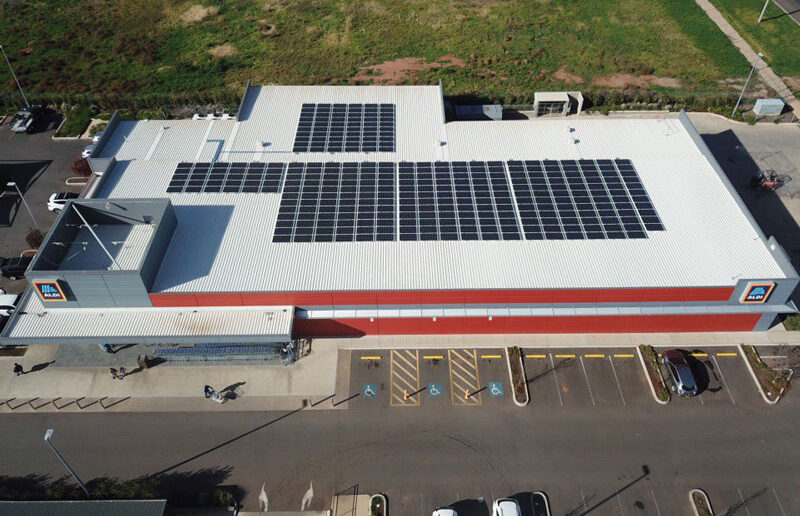ALDI Stores
ALDI Stores has been selected as an ABA100® Winner for Business Sustainability in The Australian Business Awards 2021. The Australian Business Award for Business Sustainability [BSA] recognises organisations that have successfully implemented initiatives that demonstrate leadership and commitment to sustainable business practices.
“We understand our impact on the environment and the responsibility that comes with it. This year, we achieved our goal to power our entire operations with 100% renewable electricity, resulting in an 85% reduction in our carbon dioxide (CO2) emissions. Being recognised in the Australian Business Awards for sustainability is testament to our Good Different approach to doing business and our focus on reducing our environmental footprint. It means our customers can feel better knowing their weekly shop isn’t costing the earth.”
In 2001, ALDI Australia opened its doors and today operates more than 570 stores and eight warehouses across the country. It employs a hardworking team of more than 13,500 who serve millions of loyal customers.
ALDI is renowned for offering high quality products at the lowest prices, with its ‘Good Different’ approach. The supermarket is able to deliver exceptional value to customers due to its unique business model, offering a limited yet carefully selected product range, and working closely with business partners to maximise efficiencies.
In 20 years of operation, ALDI Australia has contributed $30.2 billion to the Australian economy through new and upgraded stores, local business partnerships and jobs. ALDI’s commitment to everyday low prices has meant Australian’s save $2.4 billion per year when they shop at ALDI compared to other major supermarkets.
ALDI maintains this great value without compromising on ethics and is committed to operating with integrity. From the way ALDI treats employees and business partners, to reducing its environmental impact in relation to food, waste, recycling, plastic, packaging, energy and carbon emissions.
ALDI has led the way on a number of environmental initiatives – including never providing single-use plastic bags and launching the nation’s first battery recycling program. The supermarket is constantly working on bigger goals and more ambitious targets.
As the 67th biggest user of electricity* in Australia, ALDI recognised an opportunity to set science-based targets and leverage the financial and environmental benefits of harnessing renewable energy. In August 2020, ALDI committed to powering all its operations with 100% renewable electricity by 2021.
ALDI achieved its renewable electricity goal by installing solar panels on its stores and warehouses, investment in offsite generation through Power Purchase Agreements with two wind farms and acquisition of third party renewable energy certificates. This approach delivered large scale renewable investment for Australia and delivered cost effective pathways for the business to reach its vision six months ahead of schedule.
This milestone removed 85 per cent of ALDI’s carbon emissions and established ALDI as the first supermarket in Australia to have all offices, stores and warehouses powered using only renewable electricity sources. As a result, ALDI has prevented over 274,000 tonnes of carbon emissions from entering the atmosphere each year, the equivalent of powering 59,677 Australian homes** or taking 80,588 cars off the road for one year***.
ALDI’s renewable electricity initiative is just one of a range of sustainability programs the business has in place. This year the business announced a goal to send zero waste to landfill by 2025 with the first step being to send zero food waste to landfill by 2023. ALDI is on track to reduce the amount of plastic used in the packaging across its own-label range by a quarter, by 2025, as well as remove certain single-use and problematic plastic items from stores.
* National Greenhouse and Energy Report 2019-2020
** Annual retail markets report 2019-20
(Source: Australian Energy Regulator – Page 116, Table A2.1 : Annual electricity usage levels. 2019-20 annual average kWh: 5,490)
*** Based on average emissions from a car 169.8gm/km; 20,000 annual km; Annual emissions from a car 169.8*20000/1000000 = 3.4t
(Source: National Transport Commission)


